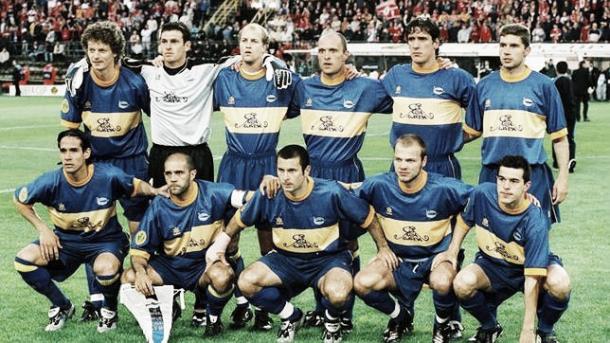Deportivo Alavés

|
| Deportivo Alavés squad — the foundations of Basque football identity. |
Deportivo Alavés — Origins, Rise, European Dream & Basque Identity
Foundation — One of Spain’s Oldest Clubs (1921)
Deportivo Alavés was founded on 23 January 1921, making it one of the earliest football institutions in Spain. The club grew rapidly as football expanded in the Basque Country, a region famous for discipline, physical football, and passionate supporter culture.
Early Development & Regional Competitions (1920s–1940s)
During its early decades, Alavés competed in regional leagues, slowly building infrastructure, fan support, and competitive identity. The club’s first major achievement came in 1930, when Alavés reached La Liga for the first time. Although they were relegated soon after, that breakthrough established Alavés as a respected Basque club.
Decades of Struggle — Segunda & Tercera Era (1950s–1990s)
Throughout the second half of the 20th century, Alavés spent long periods in Segunda División, Segunda B, and even Tercera División. Despite financial instability and sporting setbacks, the club maintained strong community support. These difficult decades laid the foundation for the dramatic rise that was coming.
The Rise — Return to La Liga (Late 1990s)
After decades of struggle, Alavés achieved a miracle: promotion to La Liga in 1998. This marked a new era of growth, investment, and competitiveness. The club quickly became known for its strong defense, smart signings, and Basque discipline.
Golden Era — The Legendary UEFA Cup Final (2000–01)
The greatest moment in the history of Deportivo Alavés came during the 2000–01 UEFA Cup. With a fearless and attacking team, Alavés shocked Europe by reaching the final.
The final vs Liverpool is considered
one of the most dramatic European finals ever played.
Final score: 5–4 (Golden Goal)
Alavés fought until the last second, earning respect around the world for their heart, courage, and attacking football. Stars like Javi Moreno, Cosmin Contra, and Magno Mocelin became club legends.
Decline, Crisis & Relegations (2005–2013)
Following their golden era, the club suffered financial problems, ownership conflicts, and a series of relegations — dropping all the way to Segunda B. This was one of the hardest periods in Alavés’ history. However, the supporters remained loyal and determined to bring the club back.
Return & Modern Stability (2013–Present)
The club finally stabilized after new investments and began rising again through the divisions. Alavés returned to La Liga in 2016, beginning a new competitive cycle filled with discipline, strong defensive structure, and smart recruitment.
A major highlight came in 2017 when Alavés reached the Copa del Rey Final against FC Barcelona — an extraordinary achievement for a club rebuilt from near collapse.
Estadio Mendizorrotza — The Blue Fortress
Alavés plays at the historic Mendizorrotza Stadium, one of Spain’s oldest football grounds. The stadium’s compact size and passionate Basque fans create an intense atmosphere that gives Alavés a strong home-field advantage.
Alavés Identity — Basque Strength, Resilience & Heart
Deportivo Alavés stands for:
• resilience & hard work
• Basque football values
• disciplined tactical structure
• emotional, loyal supporters
• European history against all odds
Alavés is more than a club — it is a symbol of survival, passion, and Basque pride.
The crest features Basque symbolism and iconic blue-and-white colors, representing identity, tradition, and resilience.
